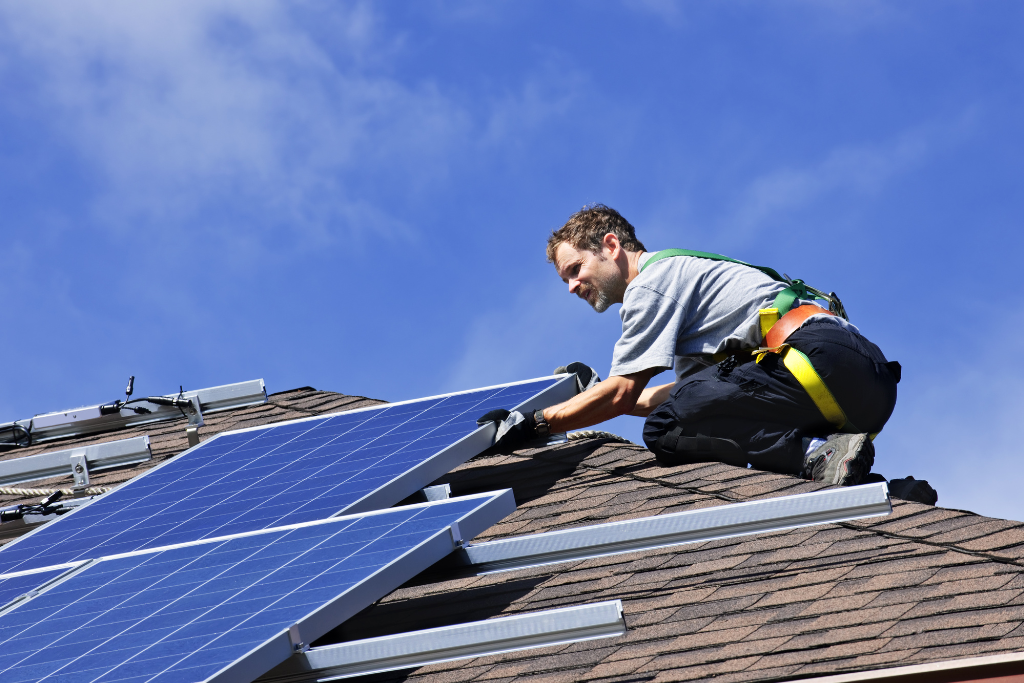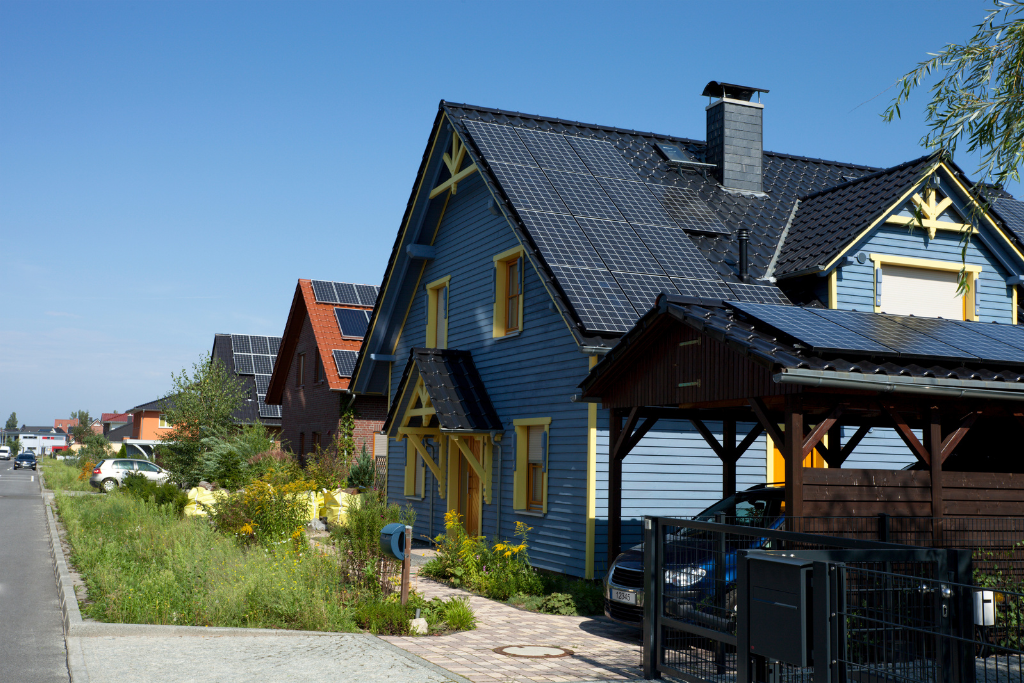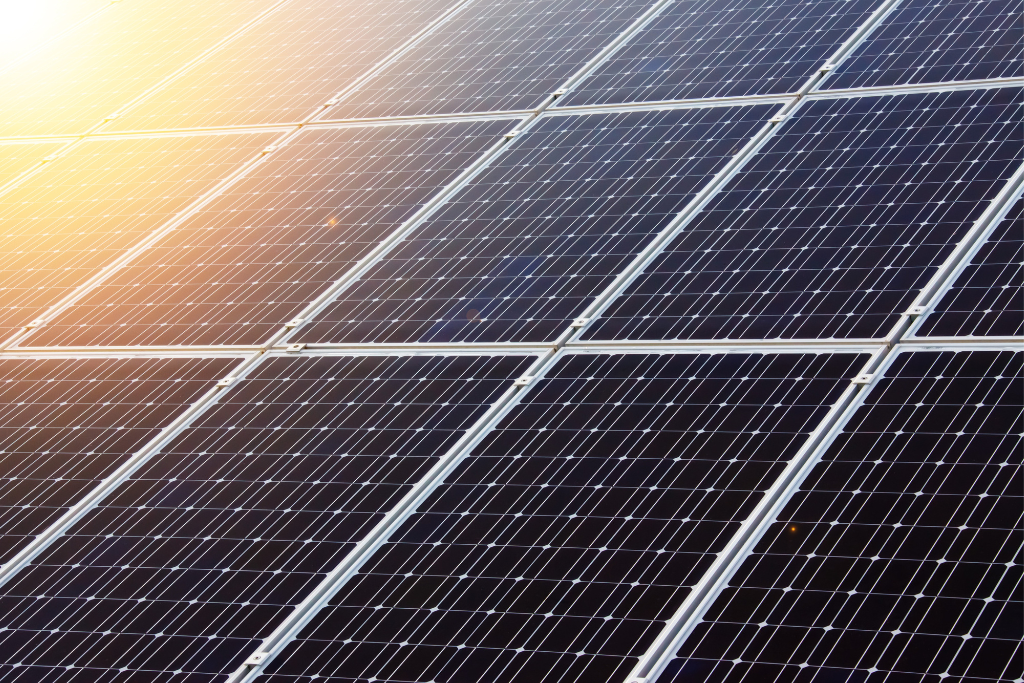Are solar panels worth it? This is a question that we get asked all the time. And the answer is yes – solar panels can save you money!
Solar panels are a great investment, not only for your future green home goals but also for your wallet. In this article, we’ll discuss how much money solar panels can save you, how long it takes for solar panels to pay for themselves, and more.
We’ll also answer some of the most frequently asked questions about solar power and how solar panels can save you money.
So if you’re interested in learning more about solar power, keep reading!
How Can Solar Panels Help You Save?
If you feel that your electricity bill is incredibly high and the energy rates offered by your utility company are draining your financial resources, then getting solar panels is a great idea.
Depending on where you live, there is an excellent chance that there is a tax break available for people with or who are installing solar panels, which means you are not only saving the environment but also your budget.
Here are some ways in which solar panels can help you to save money:
- In recent years they have become fairly affordable to install.
- Provide you with a long-term subsidy in the form of a tax break.
- Reduces electricity bills as you are less reliant on the national grid.
- Solar panels will last for many years and require less maintenance than traditional heating solutions.
- When installed correctly, solar panels can extend the lifespan of your roof.

How Much Does It Cost to Install Solar Panels?
This is a difficult question to answer as it depends on the size of your home, how much sunlight you get, the type of solar panel you choose, and more. However, solar panels have become much more affordable in recent years. In fact, the cost of solar has dropped by more than 70% since 2010!
At the moment, the rough average cost to install solar panels in the US is around $10,000 and can run between £5,000 to £10,000 in the UK. The UK government does offer Renewable Energy Grants to help with installation, and if you are not eligible for these grants, you can consider taking out a personal loan.
Despite these high initial costs, solar panels tend to pay themselves off within seven years because of savings on your monthly energy bills. If you are generating excess electricity, you can even sell it back to the grid.
How much money can solar panels save you?
Solar panels can save you a lot of money on your energy bills. In fact, the average solar panel system can save you about $600 per year! That means that over the course of 20 years, you could save a total of $12,000! And if you live in an area with high electricity rates, your savings could be even higher.
Added Benefits of Solar Panels
Increased Home Value
Solar panels add value to your house. Having properly maintained panels on your property can substantially increase your home’s resale value.
Long-Lasting
Solar panels not only require very little maintenance once installed, but they are also incredibly long-lasting. Good quality solar panels can last up to 30 years, which means once they are installed, you do not have to stress again about having to pay more installation costs in the near future.
Minimal Maintenance
Solar panels are made from sustainable, tough materials, and once these systems are in place, they require very little upkeep to continue working.
Environmentally Friendly
Solar panels are a great way to reduce your carbon footprint and help save the environment. Solar power is a renewable energy source, which means that it will never run out. And solar panels do not produce any harmful emissions, so they are much better for the environment than traditional fossil fuels.

Solar Panel Frequently Asked Questions
We’ve gathered some of the frequently asked questions about solar panels and done our best to provide our opinion on these questions. However, this should not be considered professional advice. If you have very specific questions about solar panel installation or maintenance, please contact a solar panel professional.
Solar panels are built to last! In fact, most solar panels come with a 25-year warranty. That means that you can expect your solar panel system to produce electricity for at least 25 years with little to no maintenance.
We think so! Solar panels are a great investment, not only to help create a green home but also for your wallet. So if you’re interested in learning more about solar power, we recommend doing some research and finding out if solar panels are right for you. Thanks for reading!
This is a difficult question to answer as it depends on where you live and the size of your home, but you can expect somewhere around $7,000 – $10,000 on average.
Again, this depends on a few factors. But typically, it takes between four and eight years for solar panels to pay for themselves. After that, they essentially start generating “free” electricity for you! And since solar panels typically last 20-25 years (or longer), that’s a lot of free electricity!
It’s much faster than you might think. Solar panel installation usually takes one to two days.
As far as everything we have seen, solar panels have no impact on homeowners insurance rates, provided you own the panels. The only issue we have heard of is when solar panels are installed on your home by a third party because you own the house but they “own” the solar panels until their investment is recouped. However, be sure to check with your insurance company before installation to make sure your solar panels won’t have any impact on your rates.
Yes! Solar panels are designed to work in all weather conditions, including snow and cold weather. In fact, solar panels actually work better in cooler temperatures because the sun’s rays are not as intense. So if you live in a cold climate, rest assured that your solar panels will still work just fine! The one caveat is that if your panels end up getting completely covered in snow, that will impact their performance.
Solar panels can work like a generator during a power outage if you have a backup battery system installed. Solar batteries store excess solar energy so that it can be used when there is no sunlight available (like at night or during a power outage). When there is a power outage, your solar panels will stop producing electricity. However, if you have a solar battery, the stored solar energy will be used to power your home.
Solar panels can still produce electricity on cloudy days, but they are not as efficient as they are on sunny days. However, solar panels are still a great investment because they will produce electricity even on cloudy days.
Solar panels are not waterproof, but they are weatherproof. That means that they can withstand rain, snow, and other weather conditions. However, if you live in an area with severe weather conditions, we recommend that you have your solar panels professionally installed to ensure that they are properly protected.
If your solar panels are damaged, you can contact the manufacturer for repairs or replacements. Most solar panel manufacturers have a 25-year warranty, so you should be covered for repairs or replacements.
If you change your mind down the road, solar panels can be removed. However, we do not recommend it. Solar panel removal is a complex and expensive process. If you need to have your solar panels removed, we recommend that you contact a professional solar installer for assistance. And you will likely need to reshingle your roof after the fact.
Solar panels are made up of photovoltaic cells that convert sunlight into electricity. The electricity is then used to power your home or business.
Solar panels have a few disadvantages, including the initial cost, the need for maintenance, and the fact that they only produce electricity during daylight hours. However, these disadvantages are typically outweighed by the benefits of solar panels.
Yes, solar panels are safe. Solar panels do not emit any greenhouse gases or other pollutants. In addition, solar panels are made with tempered glass that is designed to withstand severe weather conditions.
It depends on the size of your home, your solar panel system, and your electricity consumption. A typical residential solar panel system can provide around 50-80% of the electricity for an average home.
If you don’t have enough sunlight, your solar panels will not produce as much electricity. However, you can supplement your solar panels with other renewable energy sources, such as wind or hydro power.
Solar panels require very little maintenance. You will need to clean them occasionally to remove dirt and debris. However, most solar panel manufacturers offer 25-year warranties, so you won’t need to worry about replacing them for a long time.
Yes, solar panels can be recycled. Solar panels are made with silicon, which is a renewable resource. In addition, solar panels contain no hazardous materials, so they can be safely recycled.
If your solar panel system fails, you will still have access to electricity from the grid. However, you may need to pay for repairs or replacement parts.
The best way to determine if solar panels are right for you is to consult with a solar panel installation company. They will be able to assess your needs and help you determine if solar panels are a good fit for your home or business.
Have more questions about solar panels? Leave them in the comments below and we’ll do our best to answer them!

Power Up Your Home
Solar power is one of the most popular forms of renewable energy and it’s easy to see why. Solar energy is free once you have installed the solar panels and it’s a sustainable energy source that will never run out. Solar power can also save you a significant amount of money on your electricity bills, which is why more and more people are choosing to install solar panels.
If you’re considering solar power for your home, you may be wondering how much it will cost to install solar panels and if solar panels are worth the investment. In this article, we answer some of the most frequently asked questions about solar power so that you can make an informed decision about whether solar panels are right for you.


Solar installation is also a growing career opportunity. By completing a solar installation course, you can establish a solid foundation of knowledge and skills while also remaining open to opportunities for continued learning and advancement in your career.